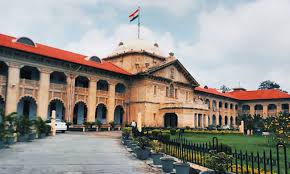D.K. Seth, J.@mdashThe services of the petitioner in Krishi Utpadan Mandi Samiti, Garaura at Nichalaul District Maharajganj, were terminated on 24.7.1987, which was challenged by means of a writ petition, wherein the Petitioners were directed to approach the labour court while the same was dismissed. Accordingly on 15.4.1989, a dispute was raised and the same was referred to the labour court, which and passed the award on 17.9.1992 re-instating the workman with back wages. The said award was published on 23.10.1992 and copy thereof was sent to the Krishi Utpadan Mandi Parishad on 29.10.1992. The Parishad moved Writ Petition No. 45492 of 1992. The Parishad moved Writ Petition No. 45494 of 1992 against the said award. However, no order of stay was granted in either of the said two writ petitions. The Parishad alleged that it came to learn about the said award only on 19.1.1993 and thereupon it filed application under Order IX, Rule 13 of the CPC for setting aside the said award on 30.1.1993. The said application was allowed by the labour court on 15.9.1993. It is against this order the present writ petition has been moved.
2. Challenging the said order dated 15.9.1993, learned Counsel for the petitioner contend that in view of Section 17A of the Industrial Disputes Act, the award had become final on the expiry of thirty days from the date of publication of the award, which was admittedly published on 23.10.1992. The said application for setting aside the award could be maintained before the expiry of the said thirty days. By no stretch of imagination, the said application can be made after the award had become final. His second contention was that in view of Sub-rule (2) of Rule 16 of the U.P. Industrial Disputes Rules, the labour court could set aside the award if within ten days of publication of the said award, the party had applied for setting aside the same showing sufficient cause for his absence.
3. Section 17A of the Act has been dealt in Grindlays Bank Ltd. v. Central Government Industrial Tribunal and Ors. and in the said case, it was held that the Tribunal had power to pass order of restoration if it thought fit in the interest of justice though admittedly there is no expressed provision in the Act or the Rules framed there under giving the Tribunal jurisdiction to do so. It is well known rule of statutory construction that the Tribunal or body should be considered to be embodied with such ancillary powers as are necessary to discharge the functions effectively for the purposes of doing justice between the parties. The said observation was made on the strength of Sub-section (1) of Section 11 of the Industrial Disputes Act as incorporated by Section 9 of the Industrial Disputes (Amendment and Misc. Provisions) Act, 1956 which provides that subject to any rule that may be made in this behalf, a Tribunal shall follow such procedure as it may think fit. The Tribunals though are not courts but have a trappings of court when they exercise quasi-judicial functions.
4. It was further held in the said case that where a party is prevented from appearing at the hearing due to sufficient cause and is faced with ex parte award, it is as If the party has visited that award without notice. However. Supreme Court in the said case though accepted that the Tribunal can prevent the abuse of its process and correct Itself by Act debtto-Justitia and such power Inhere it. But the Tribunal became functus officio and had no Jurisdiction to set aside the ex parte award as soon the award became enforceable u/s 17A of the Act. It was laid down "the proceedings with regard to reference u/s 10 of the Act, are, therefore, not deemed to be concluded until expiry of thirty days from publication of the award. Till then the Tribunal retains Jurisdiction over the dispute, referred to it for adjudication and up to that date it has power to entertain the application in connection with such dispute. That stage is not reached till the award becomes enforceable u/s 17A of the Act.
5. In the present case, application for setting aside ex parte award was made on 30.1.1993 while the award was published on 23.10.1992, namely, long after expiry of thirty days from publication of the award. Therefore, the Tribunal had no jurisdiction to deal with the same in view of the ratio decided in the case of Grindlays Bank Ltd. (supra). Therefore, the order dated 15.9.1993 impugned in the present writ petition, being Annexure-6 of the writ petition cannot be sustained and as such, is quashed. Accordingly, a writ of certiorari do issue. The writ petition is as such allowed.
This order, however, shall not prevent the Respondents from challenging the award at appropriate forum.

